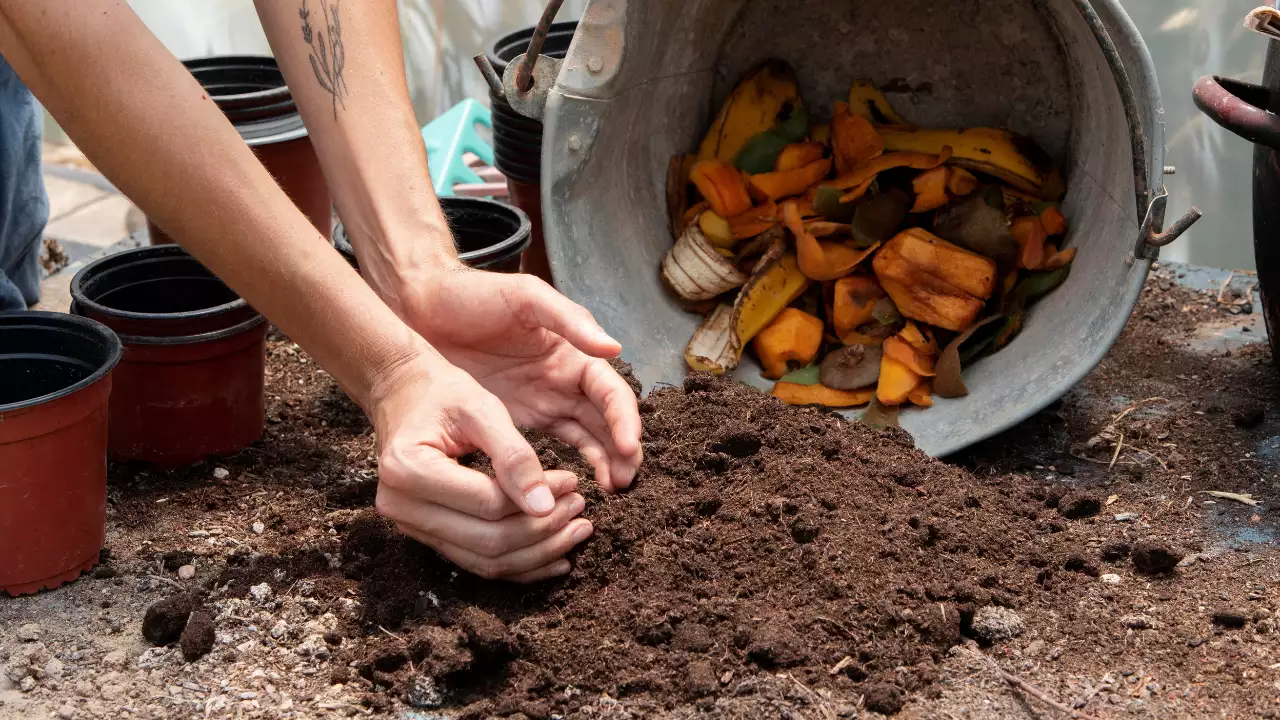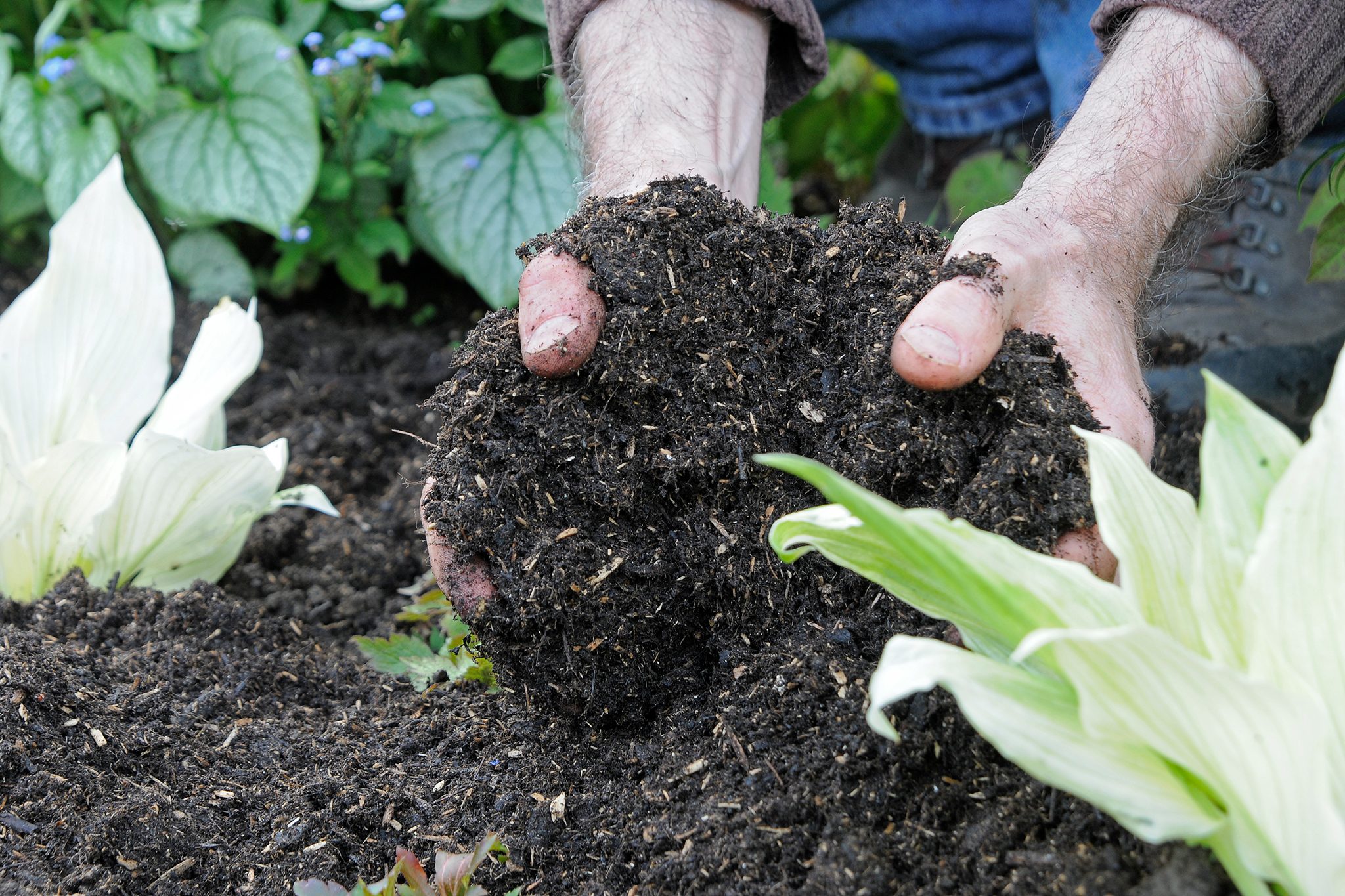Transform your garden into a blooming oasis with the power of nature’s “green gold” – compost and manure. Welcome to the ultimate guide that will navigate you through nourishing your garden soil, promoting healthy plant growth, and reducing waste. Whether you are a seasoned gardener or a novice enthusiast, this comprehensive resource is tailored to elevate your gardening game to new heights. Explore the benefits of composting and the strategic use of manure to cultivate a thriving garden that flourishes with vitality and abundance. Unearth the secrets of organic gardening practices that not only benefit your plants but also contribute to a sustainable ecosystem. Get ready to unlock the potential of your garden and witness the magic of green gold at work.
Benefits of Composting and Using Manure in Gardening
Composting and the use of manure in gardening offer a plethora of benefits that can significantly enhance plant health and soil quality. First and foremost, compost acts as a natural fertilizer, enriching the soil with essential nutrients that support plant growth. Unlike synthetic fertilizers, compost provides a slow-release source of nitrogen, phosphorus, and potassium, allowing plants to absorb these nutrients steadily over time. This gradual availability helps prevent nutrient leaching, ensuring that your garden remains fertile and vibrant.
Moreover, compost improves soil structure and aeration, which is crucial for healthy root development. When incorporated into the soil, compost helps create a crumbly texture that promotes better drainage and prevents compaction. This improved structure allows for enhanced water retention, reducing the frequency of irrigation while also protecting against drought conditions. Healthy soil encourages the proliferation of beneficial microorganisms and earthworms, which further contribute to a thriving ecosystem within your garden.
Using manure, another form of “green gold,” brings its own set of advantages. Manure is rich in organic matter and essential nutrients, making it an excellent soil amendment. It enhances moisture retention and provides a habitat for beneficial soil organisms. Additionally, the microbial activity stimulated by manure helps break down organic matter, releasing nutrients into the soil, which ultimately leads to robust plant growth. Both compost and manure also play a significant role in reducing waste, as they recycle materials that would otherwise end up in landfills, contributing to a more sustainable gardening practice.
Types of Compost and Manure
When embarking on your composting journey, understanding the various types of compost and manure is essential. Compost can be divided into two main categories: hot compost and cold compost. Hot composting involves a more active process where organic materials are rapidly decomposed at high temperatures, typically ranging from 130°F to 160°F. This method requires regular turning and monitoring to maintain the heat, but it produces finished compost in a matter of weeks. Cold composting, on the other hand, is a slower, more passive approach. Materials are layered and left to decompose naturally over several months to years, resulting in rich compost with minimal effort.
In terms of manure, it comes from various sources, including livestock such as cows, horses, chickens, and rabbits. Each type of manure has its unique nutrient profile. For example, cow manure is high in nitrogen and phosphorus, making it particularly beneficial for vegetable gardens. Horse manure, rich in organic matter, improves soil structure and moisture retention. Chicken manure is exceptionally nutrient-dense but must be composted before application to avoid burning plants due to its high nitrogen content. Rabbit manure is often considered “cold” and can be applied directly to the garden without composting, as it is less likely to cause nutrient overload.
Understanding the properties of different compost and manure types allows gardeners to select the best options for their specific needs. Combining various materials can enhance nutrient diversity and improve overall soil health. For instance, mixing green compost (high in nitrogen) with brown compost (high in carbon) can create a balanced mix that speeds up decomposition and provides a well-rounded nutrient profile for plants.

Composting Techniques for Beginners
Starting your composting journey can seem daunting, but with a few straightforward techniques, anyone can create their compost at home. One of the simplest methods for beginners is the bin composting technique. This involves using a designated compost bin or container to collect organic waste. Begin by layering green materials, such as vegetable scraps and grass clippings, with brown materials, like dry leaves and cardboard. Maintaining a balanced ratio of greens to browns is crucial, as it helps promote efficient decomposition.
Another beginner-friendly technique is the pile composting method. This requires creating a compost pile in a designated area of your yard. Start by placing coarse materials like twigs or straw at the bottom to allow for airflow. Then, layer organic waste, ensuring to mix greens and browns. Turn the pile every few weeks to aerate it, which speeds up the decomposition process. This method is beneficial for those with more space and allows for larger quantities of composting materials.
For those short on space, vermicomposting, or worm composting, is an excellent option. This technique utilizes red worms to break down kitchen scraps and produce nutrient-rich worm castings. Set up a worm bin with bedding materials like shredded newspaper, add your kitchen waste, and let the worms do the work. Vermicomposting can be done indoors, making it a perfect solution for apartment dwellers or those without outdoor space. Each of these composting techniques can help beginners embark on their journey toward creating their very own “green gold.”
Using Manure Safely in Your Garden
While manure is a valuable resource for gardeners, using it safely is paramount to avoid potential issues such as nutrient overload and pathogens. One of the most critical steps in using manure is ensuring it is well-composted before application. Fresh manure can contain harmful bacteria and pathogens that pose health risks to humans and plants. Composting manure at high temperatures helps to kill off these pathogens, making it safe for garden use. Aim for a composting period of at least six months to a year for most types of manure.
Another essential aspect of using manure safely is understanding its nutrient content. Manure is rich in nitrogen, phosphorus, and potassium, but the ratios can vary significantly between different types of livestock. Conducting a soil test can help determine the existing nutrient levels in your garden, allowing you to apply manure in a way that meets your plants’ needs without over-fertilizing. Over-application can lead to nutrient runoff, which can contaminate local waterways and harm the environment.
When applying manure to your garden, timing is also crucial. The best time to add manure is in the fall or early spring, allowing it to break down further before the growing season. This practice ensures that nutrients are available when plants need them the most. Additionally, avoid applying manure directly to root crops, as it can come into contact with edible parts. Instead, side-dress or apply it to the soil between rows to minimize the risk of contamination while still providing your plants with the benefits of this organic amendment.
Compost and Manure: Dos and Don’ts
To successfully utilize compost and manure in your garden, adhering to a set of dos and don’ts can guide you in making the most of these resources. One of the foremost dos is to always mix your compost and manure with soil. This practice helps to integrate nutrients and organic matter into the soil, minimizing the risk of nutrient runoff and ensuring that plants can access the benefits of these amendments effectively. Additionally, regularly turning your compost pile is a must; it promotes aeration and helps maintain the temperature necessary for decomposition.
Another essential do is to keep your compost pile moist but not overly wet. The right moisture level encourages microbial activity while preventing unpleasant odors and pests. Aim for a consistency similar to a damp sponge. Monitoring the temperature is also vital; a properly maintained compost pile should reach between 130°F and 160°F to effectively break down materials and kill pathogens.
Conversely, there are several common don’ts to keep in mind. Do not add meat, dairy, or oily foods to your compost pile, as these materials can attract pests and create odors. Similarly, avoid using manure from carnivorous animals, as it may contain harmful pathogens. Furthermore, refrain from applying fresh manure directly to garden beds, particularly before planting, as it can lead to nutrient burn and contamination of edible crops. By following these dos and don’ts, you can optimize the benefits of compost and manure while maintaining a healthy garden environment.
Compost and Manure Application Guide
Knowing how to apply compost and manure correctly can significantly impact the health of your garden. When it comes to compost, a general rule of thumb is to apply a layer of 1 to 2 inches on the surface of your garden beds before planting. Incorporating it into the top few inches of soil will help ensure that nutrients are readily available to your plants. For established gardens, a light top-dressing of compost in the spring can help rejuvenate the soil and encourage healthy growth throughout the growing season.
For manure application, it’s essential to calculate the appropriate amount based on soil needs and the nutrient content of the manure being used. A common recommendation is to apply about 20 to 30 pounds of well-composted manure per 100 square feet of garden space. This amount provides a balanced nutrient boost without overwhelming the plants. When applying, ensure that the manure is spread evenly and worked into the soil to prevent nutrient runoff and ensure that plants can access the nutrients effectively.
Timing is critical when applying both compost and manure. It’s best to incorporate these amendments before planting or during the off-season to give them time to break down and enrich the soil. If applying during the growing season, aim to do so during periods of low moisture and avoid direct application to the base of plants to prevent burn. Observing these guidelines ensures that your garden receives the full benefits of compost and manure, promoting a flourishing and productive growing environment.

Organic Gardening with Compost and Manure
Organic gardening emphasizes the use of natural resources to cultivate healthy plants and sustainable ecosystems. Compost and manure are at the forefront of organic gardening practices, providing a wealth of nutrients without the harmful impacts associated with synthetic fertilizers. By using compost, gardeners can improve soil fertility, enhance microbial activity, and create a balanced ecosystem that supports healthy plant growth. The organic matter in compost not only supplies essential nutrients but also improves soil structure, leading to better water retention and drainage.
In organic gardening, manure serves as a powerful amendment that enriches the soil while promoting sustainable practices. When sourced from organic farms, manure can be a safe and effective way to contribute necessary nutrients to the soil. It’s crucial to ensure that the manure is well-composted to eliminate any pathogens and reduce the risk of nutrient overload. This process aligns with organic principles, as it minimizes the introduction of synthetic chemicals and promotes a natural approach to gardening.
Incorporating compost and manure into your organic gardening routine also helps to close the loop in waste management. By recycling kitchen scraps, yard waste, and animal manure, gardeners can reduce their ecological footprint and contribute to a more sustainable environment. This practice not only enriches the soil but also fosters a sense of connection to the natural cycles of life. Embracing compost and manure in organic gardening leads to healthier plants, more resilient soil, and a more sustainable approach to cultivating your garden.
Compost and Manure: Troubleshooting Common Issues
Despite the numerous benefits of compost and manure, gardeners may encounter various challenges when using these organic materials. One common issue is unpleasant odors emanating from the compost pile or manure application. This problem often arises from an imbalance in nitrogen and carbon content, excessive moisture, or insufficient aeration. To troubleshoot this, ensure that you are maintaining the correct greens-to-brown ratio in your compost pile, and regularly turn the pile to improve aeration. If the pile is too wet, adding more dry materials can help absorb excess moisture and eliminate odors.
Another issue that gardeners may face is the presence of pests in the compost or manure. Fruit flies, rodents, and other pests can be attracted to improperly managed compost piles or fresh manure. To minimize this problem, cover your compost with a lid or tarp to keep pests out and avoid adding food scraps that may attract them. For manure, ensure that it is well-composted before application to reduce the likelihood of attracting pests to your garden.
Lastly, nutrient imbalances can occasionally occur when using compost and manure. Signs of nutrient deficiency include yellowing leaves, stunted growth, or poor flowering and fruiting. Conducting a soil test can help identify specific nutrient deficiencies, allowing you to adjust your compost and manure application accordingly. Over time, as you become more familiar with your soil’s needs and the characteristics of your compost and manure, you’ll be better equipped to troubleshoot and ensure that your garden thrives.
Conclusion: Growing a Healthy Garden with Green Gold
In conclusion, compost and manure are invaluable resources for creating a thriving garden that flourishes with health and vitality. By understanding the benefits of these organic materials, the various types available, and effective application techniques, gardeners can unlock the full potential of their soil. Composting and using manure not only enrich the garden but also contribute to a more sustainable and eco-friendly approach to gardening.
As you embark on your journey with compost and manure, remember the importance of safety and proper management to optimize their benefits. By following best practices, adhering to dos and don’ts, and troubleshooting common issues, you can cultivate a healthy and productive garden. The magic of “green gold” lies in its ability to transform waste into a powerful resource, enriching the soil and promoting a vibrant ecosystem.
Ultimately, embracing compost and manure in your gardening practices fosters a deeper connection to nature and cultivates a sense of responsibility toward the environment. As you witness your garden flourish with the nourishment of compost and manure, you’ll not only reap the rewards of your labor but also contribute to a sustainable future for generations to come. Happy gardening!
